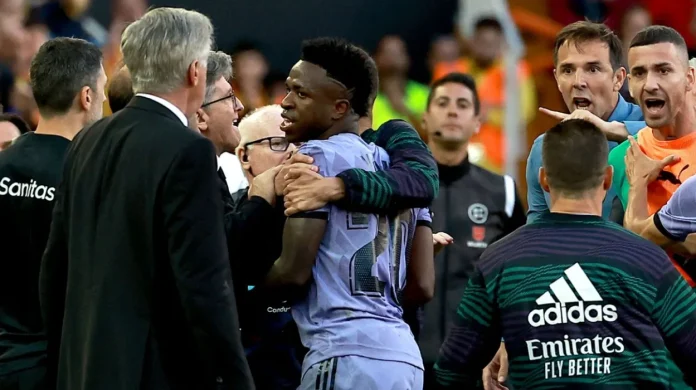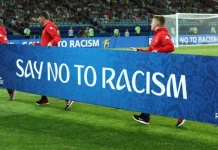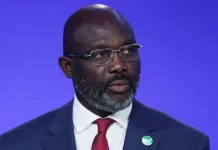FIFA has long claimed that it has zero-tolerance to racism in football. This was once again affirmed in 2025 when its Disciplinary Code was amended. The amendments made fines against racist acts up to 5 million Swiss francs maximum and institutionalized a 3-step anti-discrimination procedure.
These measures are meant to enable referees to stop, suspend or cancel matches due to discriminatory behavior. Bans and points deductions on teams at stadiums are other instruments that are now expressly under FIFA sanctioning authority.
Legal Collaboration And International Partnerships
Anti-racism activities of FIFA have been pushed to legal levels. It has also promoted the idea of football-related racism as a hate crime through national legal systems through cooperation with the United Nations Office on Drugs and Crime (UNODC).
In May 2025, president Gianni Infantino stressed that the sport of football cannot be used to fight racism alone. He requested more correspondence between discipline and judicial accountability in order to provide substantial deterrence.
Recurring Offenses Despite Stronger Penalties
In spite of these increased sanctions, racism continues to be practiced in stadiums all over the world. In the June 2025 World Cup qualifiers, six national federations (Argentina, Albania, Serbia, etc) were punished due to fan behavior that was discriminatory.
Albania received a fine of over 200,000 and stadium access restrictions, while Argentina received a punishment of 149,000. This shows that fines are not very effective in deterring recidivism.
A Pattern Of Recidivism Among National Federations
According to critics, even six-figure fines are frequently absorbed by federations without having any effect on behavior or internal reform. Richer football associations especially, can afford fines as the cost of doing business instead of a red flag showing something wrong with the system.
As a result, repeat offenses will continue to be a trend, which undermines the deterrent effect of the existing FIFA disciplinary system.
The Structural Weaknesses In FIFA’s Punitive Approach
The enforcement mechanisms used by FIFA are limited both legally and organizationally. As much as match interruptions and fines provide a temporary remedy to the situation, they are not sufficient to uproot racism in football environments.
Real-Time Inadequacy And Perpetrator Identification
Immediate enforcement is one of the largest problems. FIFA procedures frequently delay taking responsibility until after an incident has been looked at. In live matches, there is sometimes no functional system to detect, segregate, or expel offenders in stadiums.
The impact of this enforcement weaknesses is that it exposes players or officials who may be victims with little protection or justice at the time, creating a potential to repeat the crime during the same match.
Jurisdictional Limits And Legal Dependency
FIFA is the body that regulates football globally, but racism in stadiums remains a social issue that is subject to national legislation. The organization has no power to prosecute and punish the offenders legally.
This reliance on the national governments and local police is a disconnection. Hate speech laws are weak or inconsistently enforced in most jurisdictions, and the punishments issued by FIFA do not have the same effect alone.
Cultural Dynamics And Internal Governance Challenges
The issues of racism in football are indicative of culture at large. Fans enter the stadiums with the prejudices of society and anonymity and crowd situations enhances the abusive behaviour. Addressing this culture cannot be done with fines or even slogans.
The Limitations Of Symbolic Gestures
Other symbolic programs are No Discrimination campaign and pre-match messages, which have been introduced by FIFA. The goals of such efforts are to create awareness and provide players with a visible platform upon which to protest racism.
These gestures however do not always have follow through. There is no universal requirement that federations adopt these efforts and as a result, compliance is not uniform and messaging is not sufficient to evoke behavior change.
Organizational Inertia And Crisis Management Culture
Critics both inside and outside FIFA claim FIFA itself does not possess the organizational culture to place anti-racism at the center of its focus unless it is a crisis. Sanctions tend to come after big scandals and the reforms seem to be in response to the scandals instead of being proactive.
This crisis-based governance restricts FIFA to build a long-term, all-embracing cultural change in its world systems.
Advancing Legal Reforms And Structural Integration
Calls for deeper legal and policy reforms have intensified in 2025. FIFA’s cooperation with UNODC now includes a push for hate crime legislation specifically addressing stadium racism, and the implementation of fast-track judicial processes for offenders.
Strengthening National Legal Systems
At UN-backed panels, FIFA officials have urged national lawmakers to criminalize racist abuse during football events and to enforce real-time legal responses. These efforts aim to fill the accountability vacuum between sports regulations and legal obligations.
Such proposals also address gaps in treating adult and youth offenders differently, introducing proportionate legal consequences based on age and intent.
Support Mechanisms And Transparency Demands
Transparency in enforcement is crucial, according to experts and former participants. Victims of abuse, often players of color, report inadequate psychological support and opaque disciplinary follow-ups.
FIFA is facing pressure to create public disciplinary records, create explicit victim assistance mechanisms, and require anti-racism training for referees and federation officials.
Ongoing Disparities And Resource Limitations
Anti-racism enforcement also faces disparities in infrastructure. Not all federations possess the technological tools, financial resources, or political backing to implement strict measures. This unevenness erodes the consistency of FIFA’s strategy.
Regional Variations In Compliance
Countries with stronger civic institutions and media scrutiny are often more responsive to FIFA directives. However, in regions where football bodies operate with limited oversight, implementation can be selective or symbolic.
This noncompliance is retroactive to any international anti-racism legislation and indicates that FIFA member associations should be required to be homogenized.
Civil Society And Independent Monitoring
The calls by the advocates to include the civil society actors and independent observers in the match-day protocols are on the increase. They can be involved in ensuring that reporting mechanisms are credible, that evidence is recorded in an objective manner, and that follow-up actions can be verified.
In 2025, it is being tested in some parts of Europe and South America, and will provide an example to others to collaborate with anti-racism NGOs and human rights watchdogs.
Rethinking Responsibility In A Global Context
The fact that the racist abuse within the stadiums continues despite harsher sanctions has led to a reassessment of the functions. There should be a sharing of responsibility between federations, law enforcers, policymakers, and the fans themselves.
Infantino’s Recognition Of Systemic Gaps
President Infantino has recognised that FIFA sanctions in themselves are not enough to eradicate racism. In his 2025 comments, he stressed that a whole-of-society response is required, not only of football bodies but also of legislators and security agencies.
This acknowledgment is an indicator that FIFA has started to tone down its rhetoric and be more of a humble and cross-sectoral partner, but there are few tangible results.
The Road Ahead For Anti-Racism In Football
The central question FIFA is grappling with now that 2025 rolls on is this: can symbolic penalties and match-day protocols become a larger-scale effort at cultural change? The available evidence so far indicates that fines and suspensions, though significant, are not touching the bottom line of the problem.
Enforcement should be legally based, culturally informed and systemically embedded to really tackle the problem of racist abuse in stadiums. In the absence of all these, the disconnect between policy and practice will continue and so will the abuse that negates the values that football is supposed to embrace.
The burden of making a difference will not be on FIFA as the world bears witness to major tournaments and qualifiers. It will rely on a concerted effort by the legal institutions, the civil society and the fans that fill the stadiums.













